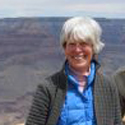 Note from Jenna: This guest post is from one of our excellent Writer’s Circle coaches and screenwriter, Sarah Newman. I’ve been thrilled to have Sarah as a coach over the last year and a half, and her group participants absolutely adore her (as do I). She brings a compassionate, listening spirit to her coaching and she is an excellent role model with her strong writing work ethic. In her own writing, Sarah primarily works on TV pilots and features.
Note from Jenna: This guest post is from one of our excellent Writer’s Circle coaches and screenwriter, Sarah Newman. I’ve been thrilled to have Sarah as a coach over the last year and a half, and her group participants absolutely adore her (as do I). She brings a compassionate, listening spirit to her coaching and she is an excellent role model with her strong writing work ethic. In her own writing, Sarah primarily works on TV pilots and features.
Today Sarah has written about several clever ways she and her group members have discovered to get themselves unstuck, past any fear or uncertainty, and stay in action with their writing.
Take a look and see what might work for you!
7 ways to overcome fear and uncertainty about writing
by Sarah Newman
One of my favorite aspects of working as a coach with the Writer’s Circle is how my group participants and I learn so much from each other by sharing our writing processes and challenges in our online progress logs on the Writer’s Circle site.
Through this work together, we’ve learned a great deal from each other about how to get going with our writing in spite of any fear, doubt, or uncertainty we’re facing.
Here are seven of my top methods to keep the writing moving that we’ve embraced in my group:
1. Work outside the document
One of our favorite ways to overcome fear or uncertainty with a section of writing is by working on it “outside” of the main document.
When I use this technique, it might look like opening a new blank document (sometimes I label mine “scrap” to really take the pressure off) or putting pen to paper. I find this gives me a greater sense of freedom to try something out and to write more boldly.
When working on rewrites, I’ll sometimes take a scene I’ve written and paste it into a new blank document to experiment with combining it with another scene or to make changes and cuts. It feels less set in stone and safer, knowing the original version is there if I want to revert back to it.
One of my group participants put her own twist on this by doing what has come to be known in our group as a “literal cut and paste”, where she’ll print and cut out sections of her chapter and move them around to assess the flow and to determine where cuts or additions can be made.
2. Have a conversation with yourself on the page
Some of my participants and I find ourselves ruminating on our projects in our morning pages or keeping a project journal to record thoughts and reflections. Having a safe place to explore our writing can lead to important insights and breakthroughs.
We journal in response to questions about content, like:
- What’s the worst thing that could happen to my protagonist at this point?
- What would be the most interesting location for this scene?
Or we dialogue with ourselves about issues coming up for us around the writing itself, by answering questions like:
- Why am I shying away from digging deeper here?
- What initially drew me to this project?
- What do I need in order to keep going?
It’s about having a conversation with yourself and writing out all possible answers, no matter how silly some may seem. We find that this process helps us get past our inner critic’s judgments and back into the flow of writing.
3. Remind yourself that no writing is wasted
We have a “no writing is wasted” motto in my group.
Whether we end up changing the material or cutting it completely, it still has value in moving us forward . . . even if it feels like it moved us backwards or sideways!
Trying something, anything, is often better than trying nothing at all and can get us going again with our writing. Mistakes are valuable. Those “wrong” turns often lead us to the “right” path.
4. Sit with the mystery
It may be uncomfortable at first as the cursor blinks tauntingly, but the process of writing itself often generates connections and ideas that will help us find our way. We don’t have to have all the answers up front.
I love when my group participants report that by sticking with it and giving themselves permission to just write, they were able to have a breakthrough.
Reframe your self-doubt and uncertainty as a call to adventure with possibilities to explore.
5. Walk it out
And then again, sometimes it can be helpful to know when to get up and take a break.
Going for a walk is a common practice in my group. My participants often report finding inspiration out in nature.
For myself, I find many ideas are born and problems solved while I wander the streets of New York City. Not to mention the added bonus of overhearing potential tidbits of dialogue. :)
6. Make friends with a timer
Solo writing sprints are part of many of our writing routines, in addition to the daily scheduled group sprints through the Writer’s Circle. With the help of our trusty timers we fight the good fight against procrastination and resistance. On days when it’s difficult to start, perhaps we’re distracted or perhaps we’re facing a particularly challenging piece of the writing, we’re able to coax ourselves to get going by setting that timer for a small, doable amount of time.
I find I’ve become trained so well now that once I hit that start button, I’m off and writing, and I often find myself resetting it for more time.
7. Trust the process
Recently I noted how it helps to trust the process even when I can’t necessarily see it at work. This is true for my group participants as well. If we continue to show up and chip away, the writing naturally unfolds. As much as we sometimes want to get more done and hurry up to finish, patience with ourselves and trusting the process helps us remain consistent and see things through to completion, even when fear or doubt wants to lead us astray.
![]()
Sarah Newman is a published writer living in New York. She writes short fiction & creative non-fiction, original one-hour drama pilots & screenplays, and zines. Sarah studied dramatic writing at NYU’s Tisch School of the Arts. When she’s not writing, reading, or watching story in all its glorious forms, you can find her on walking adventures around New York City and on Twitter at @SarahAlexis4.
![]()
Thanks for reading!
We’d love to hear your thoughts in the comments.
Warmly,


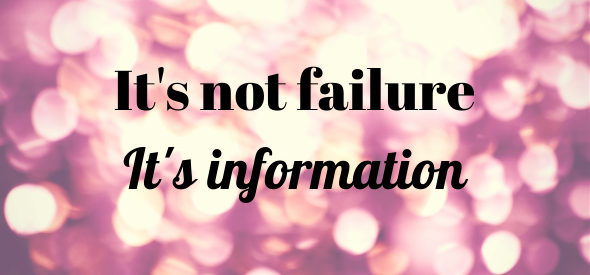
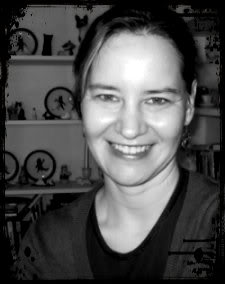 A note from Jenna: This guest post from the highly talented coach and writer, Jill Winski — whom I’m proud to have serving as a coach for my online Writer’s Circle coaching program — offers insights for writers who struggle to finish their writing projects.
A note from Jenna: This guest post from the highly talented coach and writer, Jill Winski — whom I’m proud to have serving as a coach for my online Writer’s Circle coaching program — offers insights for writers who struggle to finish their writing projects.
 Many people have unfinished writing projects that linger for years, but it’s never too late to finish your book. And the time to get restarted might just be now.
Many people have unfinished writing projects that linger for years, but it’s never too late to finish your book. And the time to get restarted might just be now.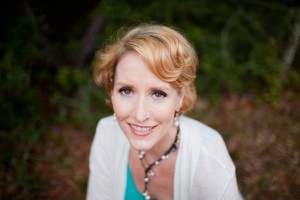 Terri Fedonczak has 22 years of parenting experience and is a certified life coach, specializing in parent and teen coaching. After 16 years as a commercial real estate agent, a bout with breast cancer transformed Terri’s life in 2010, making her realize that time with her four girls and patient husband was a much better deal than money and status. It was time to put her mission into action. She left sales and embarked on a journey of spreading the message of girl power for good. When Terri is not writing books, speaking, coaching, or blogging, you can find her paddle boarding on the sparkling waters of Boggy Bayou, knitting to the consternation of her children, who are buried in scarves and hats, or dancing in her kitchen to Motown.
Terri Fedonczak has 22 years of parenting experience and is a certified life coach, specializing in parent and teen coaching. After 16 years as a commercial real estate agent, a bout with breast cancer transformed Terri’s life in 2010, making her realize that time with her four girls and patient husband was a much better deal than money and status. It was time to put her mission into action. She left sales and embarked on a journey of spreading the message of girl power for good. When Terri is not writing books, speaking, coaching, or blogging, you can find her paddle boarding on the sparkling waters of Boggy Bayou, knitting to the consternation of her children, who are buried in scarves and hats, or dancing in her kitchen to Motown.

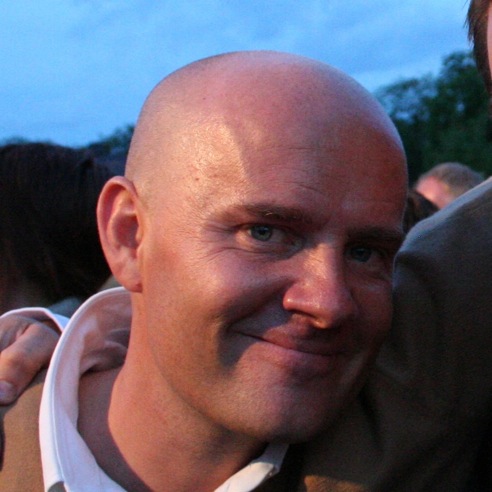 When he joined the Circle all the way from Sweden, Rikard Bergquist had been working on his novel intermittently, struggling to find enough time to write and to move past the outlining and preparation stage into writing actual New Words. And he had a little two-year-old daughter at the time too! (She’s three now.)
When he joined the Circle all the way from Sweden, Rikard Bergquist had been working on his novel intermittently, struggling to find enough time to write and to move past the outlining and preparation stage into writing actual New Words. And he had a little two-year-old daughter at the time too! (She’s three now.)



